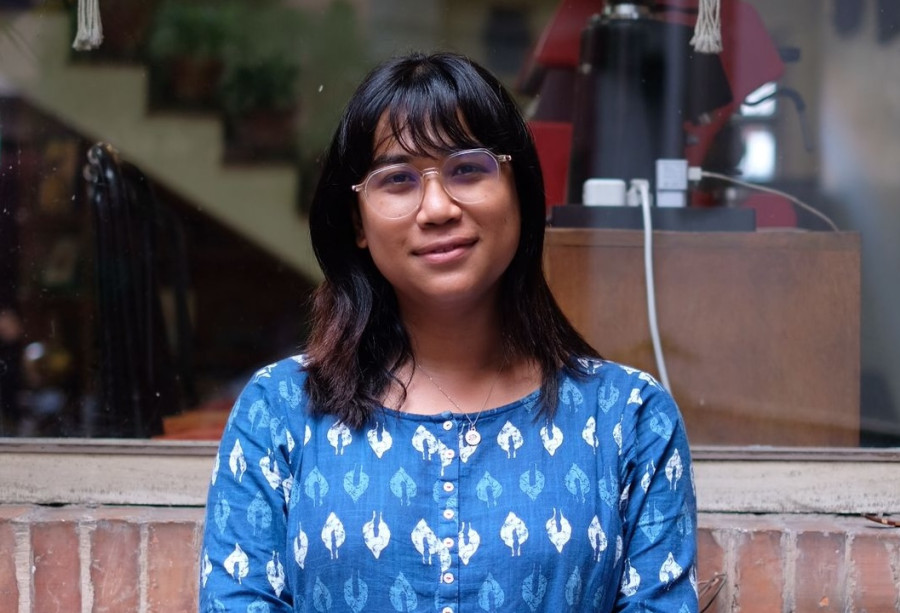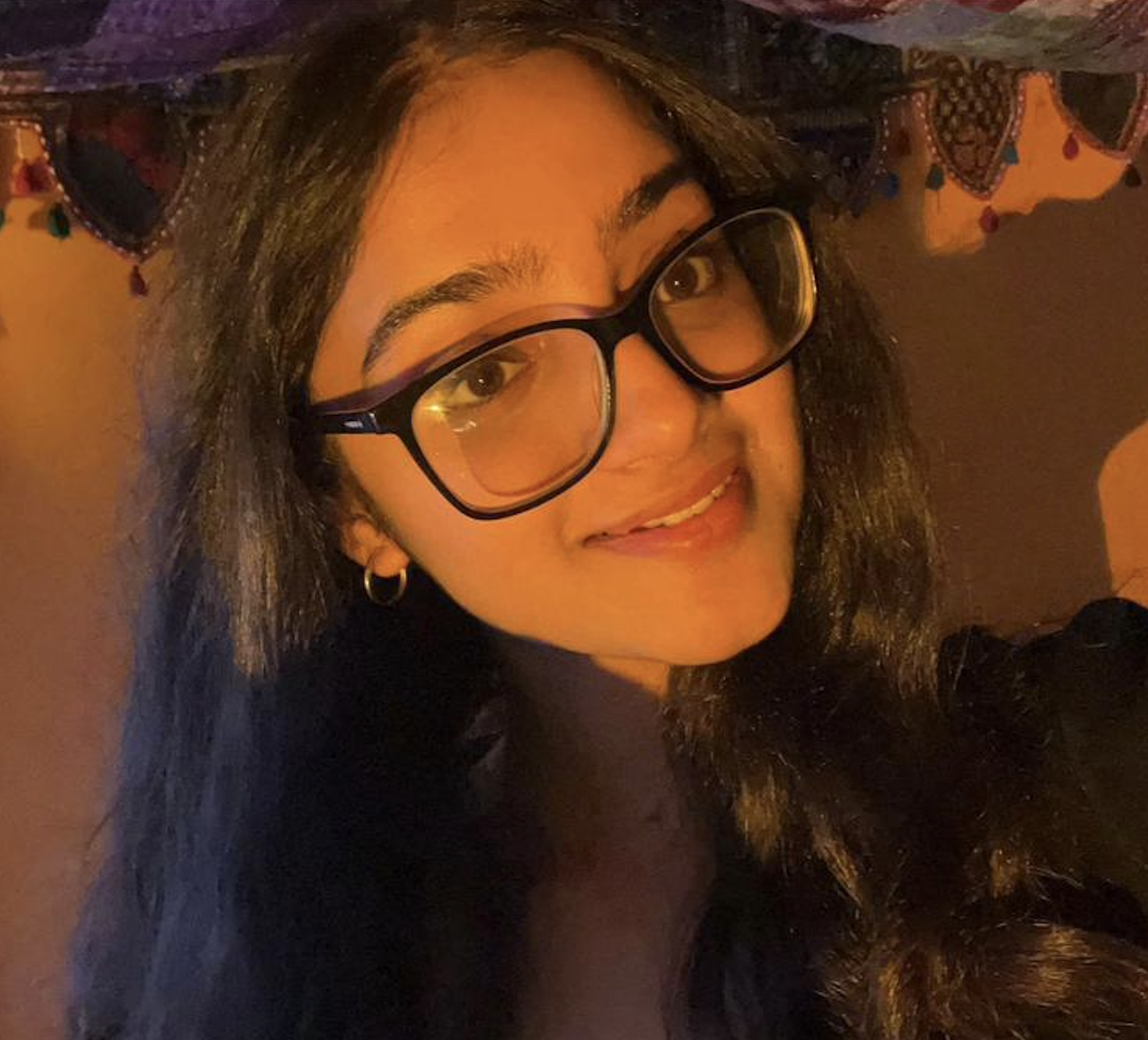Books
Contemporary fiction reflects social discourse
Writer Dia Yonzon talks about queer literature, her work at the UN Women Nepal, and the books that have influenced her.
Rishika Dhakal
Dia Yonzon (she/her) is a writer and researcher. She runs The Melung Stories, a platform dedicated to amplifying the literary and artistic expressions of queer and indigenous communities. Yonzon is also affiliated with the Writing Center at the Open Institute of Social Science.
In this conversation with the Post’s Rishika Dhakal, Yonzon talks about queer literature, her work at UN Women Nepal, and the books that have influenced her.
How has your background in law and arts influenced your approach to advocacy and activism at UN Women Nepal?
I worked at the UN Women Nepal for three years. My background in law had a direct influence on my work. However, I never wanted to become a practising lawyer; I just wanted to understand the philosophy of law.
While studying law, I gravitated towards the field of human rights.
Currently, I am involved in creating art and literature. I realised that when we need to say something in society, more than logistics and data, what touches people’s hearts is art. It is because art shapes us in subtle ways, knowingly or unknowingly.
Reading feminist literature has also shaped my activism. So, everything I do has been shaped by the books I read. For example, many people dismiss ‘Pride and Prejudice’ as cheap literature.
But once you read the book, you will find that Jane Austen provided satirical commentary on the era in which she was born.
Even today, we tend to dismiss literature. Art and literature provide a subtle glimpse of the contemporary world.
The first book that made a significant impact on you and why?
I mostly write about how time and space affect love. As a child, I remember reading ‘The Time Traveller’s Wife’, the first book I purchased with pocket money.
And now that I think about it, the book significantly influenced me because I am a sucker for romance. The story centres on a timeless love that transcends specific moments and places. This one component resonated with me.
But as my writing grew, I realised it didn’t necessarily have to be about sci-fi. I write about general things, such as how people express love. I developed that by reading ‘The Time Traveller’s Wife’.
In your experience, how important is queer literature for the representation and empowerment of queer individuals?
While growing up, I didn’t see much mainstream literature that had queer representation. This made me feel like I was some sort of outcast.
And it wasn’t just me who felt this way; others did, too. You want to feel you are being represented.
During my childhood, there was only one mainstream memoir about a gay person that I remember. Nepali literature should be more diverse. As it will allow young people from such communities to feel like they are being represented.
The greater the presence of queer literature, the more normalised it will become.
Currently, the representation of queer people is disheartening, often depicting their lives as solely filled with suffering. By discussing the various dimensions of queer life, including joy and sadness, we can normalise these experiences. This helps non-queer allies to relate and understand better.
One of my major concerns is that we only have access to popular media, which limits our understanding of contemporary society in the past. For queer people, this is especially troubling because there are no reference points to learn about their experiences and situations back then.
Decades ago, queerness was vilified. Films like ‘Chandigarh Kare Aashiqui’, reflect minor narrative shifts in our society, even if they are misguided portrayals of the experiences of queer people.
Compared to the past, many people today are discussing queerness, indicating a significant societal shift. This is why it is crucial to write more queer stories now. From a documentary and archival perspective, these stories will be invaluable for understanding the experiences of queer people in the future.
As someone who is into fiction, how do you think it can contribute to understanding social issues?
Fiction reflects contemporary society and its conversations, ultimately allowing us to address various prevalent issues.
In fiction, if you’re a man reading a novel with a female protagonist, you can immerse yourself in the protagonist’s experience.
Because fiction is a story, it isn’t necessarily preachy. It doesn’t order people to do this or that. Instead, it builds a world and invites people to explore it.
No subject is one-dimensional, so it allows you to explore everything.
Speculative fiction lets us see what might happen if we continue on a certain path.
By capturing all the small nuances of society in the story, we can amplify and highlight issues that have not received the attention they deserve.
What books would you recommend to non-queer allies who want to better understand and support queer communities?
Many smaller publications help in aiding one's understanding of queerness. Recently, we conducted a 10-day residency titled ‘A Room of One’s Own’.
The UN, Katha Satha, and the Open Institute supported the residency. At the end of it, we published a book of the same title.
One can follow magazines like ‘Queerbad’ by the Queer Muslim Project (TQMP), which features stories written by queer writers from South Asia.
Similarly, the ‘A Room of One’s Own: Queer Writer’s Residency’ publication can also be followed. Additionally, small independent zines such as ‘A Song of Revolution’ from Nepal should be considered.
For more accessible reads, I recommend Niranjan Kunwar’s ‘Between Queens and the Cities’ and ‘Beyond the Gender Binary’ by Alok Vaid-Menon.
Ocean Vuong's ‘On Earth, We’re Briefly Gorgeous’ is also an excellent work of fiction that provides insight into queer experiences.
Can you share about the Melung stories writing workshop? How do these workshops contribute to the queer and indigenous literary community?
Melung Stories is a storytelling platform. They document and archive stories of queer people.
Writing is not seen as a lucrative job. Even if one chooses to be a writer, they need a community. The community I speak of includes editors, readers, and publishers who will support you.
Plus, there is no certainty that it will pay you.
In that context, many people who belong to indigenous or marginalised communities avoid writing and instead take up stable jobs that pay well.
So, who ends up writing? Folks who already have resources, have generational wealth or can make time for themselves.
In our workshop, we target queer and indigenous people. We want to give them resources, time, space, guidance, and a certain agency. There are lots of people who want to share their stories but don’t have the time or the space to do so.
So, in Melung stories, we give them time and space. And their stories get recorded.
How do you envision the future of queer literature and representation in Nepal?
When discussing art and literature, we assume they are void of societal issues. This is because the language we use to discuss them is sophisticated. However, art and literature are not created in a vacuum. They feed off of society and reflect the society we live in.
Nepal and South Asia need more diverse voices to tell authentic and meaningful queer stories. Queer literature shouldn’t be limited to biographies and memoirs; it can include fiction, biography, or sci-fi to reach a broader audience.
Queer books shouldn’t be treated as rare treasures but should be made widely accessible.
Diya Yonzon’s book recommendations
The God of Small Things
Author: Arundhati Roy
Publisher: Random House
Year: 1997
The book tells the story of two fraternal twins. I tried to read it during my school years but found it challenging. Revisiting it recently, I discovered that it is a deep exploration of love, family, and relationships.
Pachinko
Author: Min Jin Lee
Publisher: Grand Central Publishing
Year: 2017
Lee’s book follows a family spanning three generations who migrate from Korea to Japan and eventually return to their homeland. The story centres on Sunja, portrayed both as a daughter and a devoted grandmother.
On Earth We’re Briefly Gorgeous
Author: Ocean Vuong
Publisher: Penguin Press
Year: 2019
The protagonist writes a letter to his mother, fully aware that she will never be able to read it due to her illiteracy. What I love about the book is the first chapter, which captures the migration of people from Vietnam to the United States.
A Room of One’s Own
Author: Virginia Woolf
Publisher: Hogarth Press
Year: 1929
This book has inspired much of my work. Woolf discusses how a woman needs her own room to pursue creativity. The idea is still relevant today, especially for those who want to explore their creative potential.
The World That Belongs To Us
Author: Aditi Angiras, Akhil Katyal
Publisher: HarperCollins
Year: 2020
This first-of-its-kind anthology brings together the best of contemporary queer poetry from South Asia. The poems in this collection are beautiful and heartwarming, featuring a diverse range of writers.




 9.6°C Kathmandu
9.6°C Kathmandu










